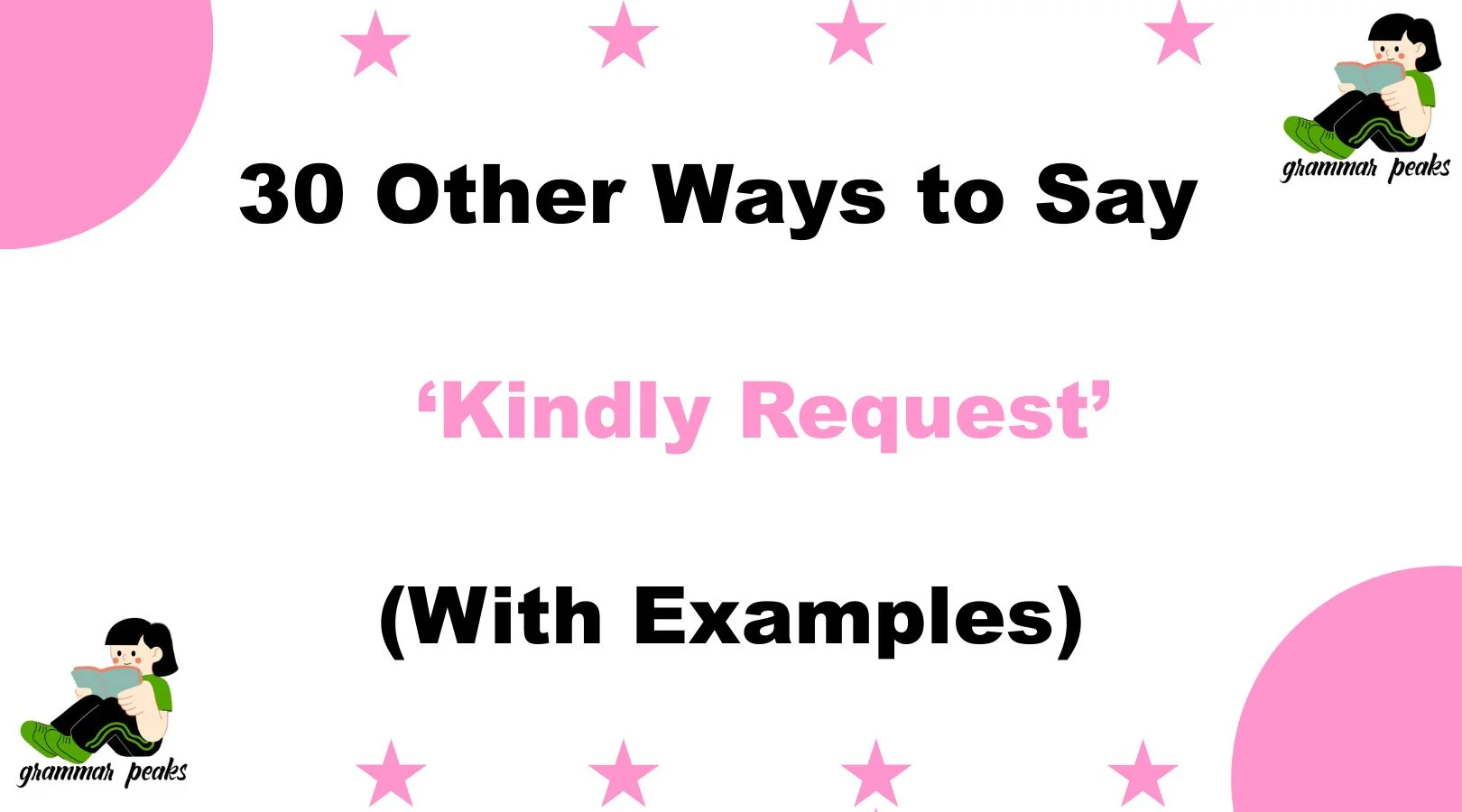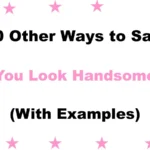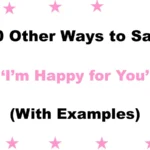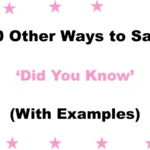Finding the right words to express care and respect is important when communicating, especially in written messages. Saying “kindly request” can sometimes feel a bit formal or repetitive. Using thoughtful alternatives not only adds warmth but also helps your message feel more personal and genuine.
Whether you’re writing a business email, a polite reminder, or asking for a favour, having different ways to phrase your request can make your communication clearer and more effective. Below, you’ll find 30 empathetic and polite alternatives to say “kindly request,” along with explanations and examples to help you use them with confidence.
What Does “Kindly Request” Mean?
“Kindly request” is a polite phrase used to ask someone to do something with respect and consideration. It combines the word “kindly,” which softens the tone, with “request,” indicating a formal or courteous ask. This phrase is often used in professional or formal communication to show politeness while making a demand or asking for assistance.
When to Use “Kindly Request”
You can use “kindly request” when you want to make a polite request that shows respect and appreciation for the other person’s time or effort. It’s common in emails, official letters, or messages where maintaining professionalism is key, such as asking for documents, cooperation, or permission.
Is It Professional/Polite to Say “Kindly Request”?
Yes, “kindly request” is considered professional and polite, especially in formal settings. However, it can sometimes come off as stiff or overly formal in casual conversations. Choosing alternative phrases can make your communication sound warmer or more natural without losing respect.
Pros and Cons of Saying “Kindly Request”
Pros:
- Polite and respectful
- Clear and direct
- Appropriate for formal communication
Cons:
- May sound too formal or impersonal
- Can feel repetitive if overused
- Might create distance in casual or friendly conversations
Synonyms for “Kindly Request”
- Would you please
- I would appreciate it if you could
- Could you kindly
- May I ask you to
- I’d be grateful if you could
- Please be so kind as to
- I humbly ask
- If you would be so kind
- I would like to ask
- Would you mind
- I am reaching out to ask
- Could I trouble you to
- I’m writing to request
- Would it be possible to
- I would like to kindly ask
- May I kindly ask
- If you could
- I am seeking your assistance to
- I would be thankful if you could
- I hope you don’t mind
- If it’s not too much trouble
- I’m hoping you can
- I’d be pleased if you could
- Please allow me to ask
- I wish to request
- I ask for your cooperation in
- Please accept my request for
- Would you be willing to
- I respectfully ask
- Could you please
1. Would you please
Definition: A polite way to ask someone to do something, inviting their cooperation.
Explanation: This phrase is straightforward and respectful, making it suitable for both formal and casual contexts.
Example: Would you please send me the report by Friday?
Best Use: When you want to make a polite and direct request.
Worst Use: Avoid in very informal chats, where it may sound too formal.
Tone: Polite, respectful, neutral.
2. I would appreciate it if you could
Definition: Expresses gratitude in advance while making a request.
Explanation: This phrase highlights appreciation, making the other person feel valued.
Example: I would appreciate it if you could review the document before the meeting.
Best Use: When you want to show gratitude alongside the request.
Worst Use: Not ideal for urgent or very casual requests.
Tone: Warm, appreciative, formal.
3. Could you kindly
Definition: A courteous way to ask someone for help or action.
Explanation: Adds softness with “kindly” and forms a question that invites cooperation.
Example: Could you kindly confirm your attendance at the event?
Best Use: When you want to remain polite and formal.
Worst Use: Avoid overusing; can feel repetitive.
Tone: Courteous, formal, gentle.
4. May I ask you to
Definition: A formal and respectful phrase to initiate a request.
Explanation: Indicates permission and respect for the person’s choice.
Example: May I ask you to provide feedback on this proposal?
Best Use: Formal emails or letters.
Worst Use: Too formal for casual conversation.
Tone: Respectful, formal.
5. I’d be grateful if you could
Definition: Expresses gratitude and politeness when asking for assistance.
Explanation: This phrase gently encourages cooperation by showing appreciation.
Example: I’d be grateful if you could share your thoughts on the draft.
Best Use: Professional requests needing a considerate tone.
Worst Use: Not suitable for very informal situations.
Tone: Appreciative, polite, formal.
6. Please be so kind as to
Definition: A very formal and respectful way to ask someone to do something.
Explanation: This old-fashioned phrase emphasizes politeness and deference.
Example: Please be so kind as to submit the form by tomorrow.
Best Use: Formal business communication or letters.
Worst Use: May sound outdated or overly formal in modern emails.
Tone: Formal, respectful, traditional.
7. I humbly ask
Definition: A modest and respectful way to make a request.
Explanation: Shows humility and respect, often used in serious or important matters.
Example: I humbly ask for your support on this project.
Best Use: Requests involving significant favors or respect.
Worst Use: Can sound too serious or dramatic for casual asks.
Tone: Humble, serious, respectful.
8. If you would be so kind
Definition: A polite way to suggest someone do something.
Explanation: Implies the person’s kindness is appreciated in advance.
Example: If you would be so kind, please review the attached document.
Best Use: Formal or semi-formal emails.
Worst Use: Avoid brief or casual messages.
Tone: Polite, warm, formal.
9. I would like to ask
Definition: A straightforward phrase to introduce a request.
Explanation: Neutral and clear without sounding too formal or casual.
Example: I would like to ask for your assistance with the event planning.
Best Use: General use in many communication types.
Worst Use: Might be too plain in very casual chats.
Tone: Neutral, polite, clear.
10. Would you mind
Definition: A gentle, indirect way to ask for permission or help.
Explanation: Softens the request by implying it might be an inconvenience.
Example: Would you mind sending me the files by noon?
Best Use: When you want to sound considerate and indirect.
Worst Use: Not suitable for very urgent requests.
Tone: Gentle, polite, considerate.
11. I am reaching out to ask
Definition: A polite phrase often used in written communication to introduce a request.
Explanation: This phrase is commonly used in emails or messages to gently ease into a request, especially when reconnecting after a while.
Example: I am reaching out to ask if you’d be available for a quick meeting this week.
Best Use: Ideal for emails, networking, or when reconnecting.
Worst Use: Can sound overly formal in rapid or familiar conversations.
Tone: Professional, approachable, courteous.
12. Could I trouble you to
Definition: A polite way to acknowledge you’re making a request that might take time or effort.
Explanation: This phrase shows empathy, recognizing the favor you’re asking from the recipient.
Example: Could I trouble you to sign off on this proposal by Friday?
Best Use: When the task you’re requesting may require effort or attention.
Worst Use: Avoid extremely casual chats; may sound overly formal.
Tone: Thoughtful, respectful, gentle.
13. I’m writing to request
Definition: A direct and professional way to initiate a written task.
Explanation: Clearly communicates your purpose in a formal written context such as business emails or letters.
Example: I’m writing to request a copy of the latest client brief.
Best Use: Formal business communication, requests in writing.
Worst Use: Sounds too rigid for spoken or informal messages.
Tone: Formal, clear, straightforward.
14. Would it be possible to
Definition: A softer, more diplomatic way to pose a request.
Explanation: This phrase expresses that the request is optional and gives the other person space to decline.
Example: Would it be possible to shift our meeting to Thursday?
Best Use: When you want to sound respectful and give flexibility.
Worst Use: Not suitable for urgent or time-sensitive messages.
Tone: Polite, accommodating, considerate.
15. I would like to kindly ask
Definition: A gentle and respectful phrase to make a formal request.
Explanation: Combines “would like” and “kindly ask” to show both intent and politeness.
Example: I would like to kindly ask for your review on the latest proposal.
Best Use: Formal business correspondence or polite asks.
Worst Use: Can feel overly wordy or redundant in casual writing.
Tone: Formal, courteous, sincere.
16. May I kindly ask
Definition: A very polite and formal way to make a request, often in emails or letters.
Explanation: Emphasizes humility and respect, especially when asking someone in a senior position.
Example: May I kindly ask you to review the attached document?
Best Use: Communicating with higher authorities or clients.
Worst Use: Too formal for internal chats or familiar conversations.
Tone: Respectful, formal, polite.
17. If you could
Definition: A subtle and gentle way to ask someone to do something.
Explanation: This phrase allows for flexibility, often used as part of a longer sentence to soften a request.
Example: If you could send the data before noon, that would be wonderful.
Best Use: When you want to avoid sounding demanding.
Worst Use: May be too vague if not followed by a clear request.
Tone: Soft, humble, indirect.
18. I am seeking your assistance to
Definition: A professional phrase that emphasizes collaboration and help.
Explanation: Shows that you value the other person’s expertise or ability to help.
Example: I am seeking your assistance to finalize the budget by Monday.
Best Use: In formal documents or teamwork settings.
Worst Use: Too formal for peer-to-peer casual communication.
Tone: Respectful, professional, collaborative.
19. I would be thankful if you could
Definition: A warm and appreciative way to ask for a favor.
Explanation: Express both the request and your gratitude in advance.
Example: I would be thankful if you could complete the survey today.
Best Use: When you want to show humility and gratitude.
Worst Use: Not ideal for extremely brief or urgent tasks.
Tone: Warm, thankful, courteous.
20. I hope you don’t mind
Definition: A casual and considerate way to ease into a request.
Explanation: This phrase helps to sound polite while making sure the request doesn’t feel imposing.
Example: I hope you don’t mind me asking for a quick update on the task.
Best Use: Friendly, casual professional settings.
Worst Use: Too informal for legal or formal documents.
Tone: Considerate, informal, gentle.
21. If it’s not too much trouble
Definition: A kind and considerate phrase that acknowledges your ask might require effort.
Explanation: Shows empathy and avoids sounding too demanding.
Example: If it’s not too much trouble, could you send over the final numbers?
Best Use: When the task is non-urgent or could take time.
Worst Use: Don’t use it for things that are clearly the other person’s responsibility—it may undermine your request.
Tone: Soft, thoughtful, respectful.
22. I’m hoping you can
Definition: A gentle and hopeful way to express a request.
Explanation: Shows that you’re making the request with optimism and consideration.
Example: I’m hoping you can give the green light on this by the end of day.
Best Use: Light, professional requests in email.
Worst Use: Too casual for official legal or HR communication.
Tone: Optimistic, friendly, warm.
23. I’d be pleased if you could
Definition: A polite way to express desire for the person to fulfill the request.
Explanation: Adds a personal note of satisfaction and gratitude.
Example: I’d be pleased if you could review this draft by Monday.
Best Use: Friendly formal emails or polite messages.
Worst Use: Can feel stiff in highly casual interactions.
Tone: Gracious, professional, cordial.
24. Please allow me to ask
Definition: A humble introduction to a polite request.
Explanation: Expresses respect before making an inquiry or suggestion.
Example: Please allow me to ask for your opinion on the strategy.
Best Use: Used in formal speech or respectful written correspondence.
Worst Use: May sound over-formal in relaxed work settings.
Tone: Humble, courteous, formal.
25. I wish to request
Definition: A very formal way to make a direct ask.
Explanation: Often used in business letters, documents, or policy-related requests.
Example: I wish to request an extension for the deadline.
Best Use: Legal, administrative, or official contexts.
Worst Use: Too stiff for emails or informal chats.
Tone: Very formal, official, direct.
26. I ask for your cooperation in
Definition: A collaborative and formal way to make a group-oriented request.
Explanation: Indicates a need for help or compliance with a process or task.
Example: I ask for your cooperation in submitting your reports on time.
Best Use: Team notices, project emails, policy memos.
Worst Use: Might seem impersonal for personal one-on-one asks.
Tone: Professional, formal, teamwork-focused.
27. Please accept my request for
Definition: A formal and polite phrase to introduce your ask.
Explanation: Highlights both the request and the recipient’s choice to accept it.
Example: Please accept my request for a brief extension.
Best Use: Written communication with clients, managers, or officials.
Worst Use: Sounds distant for casual situations.
Tone: Respectful, formal, measured.
28. Would you be willing to
Definition: A gentle and respectful way to ask if someone is open to helping.
Explanation: This phrase respects the other person’s choice and avoids pressure.
Example: Would you be willing to share your insights in our next team meeting?
Best Use: Collaborative or mentorship-related requests.
Worst Use: May not be direct enough for time-sensitive needs.
Tone: Friendly, respectful, thoughtful.
29. I respectfully ask
Definition: A formal and sincere phrase that emphasizes deference and politeness.
Explanation: Shows strong politeness and is suitable in sensitive or serious matters.
Example: I respectfully ask for your approval on the final design.
Best Use: Requests involving authority figures or sensitive subjects.
Worst Use: May sound overly serious for casual messages.
Tone: Formal, respectful, sincere.
30. Could you please
Definition: A common, polite way to make a simple request.
Explanation: Easy to use, universally understood, and adaptable in tone.
Example: Could you please send me the invoice by tomorrow?
Best Use: All-around usage for casual and formal settings.
Worst Use: If overused, it may feel generic.
Tone: Polite, universal, neutral.
Conclusion
Using alternatives to “kindly request” gives you a powerful toolkit to communicate with warmth, precision, and respect. Whether you’re writing a formal letter or sending a friendly email, the right words can influence how your message is received. From expressions like “Would you please” to “I respectfully ask,” each phrase has its own tone, ideal scenario, and best use case. With this list of 30 thoughtful alternatives, you can now express requests in ways that resonate better with your audience—making your communication more impactful and human.
FAQs
1. Is it correct to say “kindly request” in professional communication?
Yes, but it can sometimes sound redundant. “Kindly” and “request” both convey politeness, so using both together might feel overly formal or old-fashioned in modern communication. Instead, phrases like “Would you please…” or “Could you kindly…” offer a smoother and more contemporary tone.
2. What is the most polite way to ask for something via email?
The most polite approach depends on context, but a universally professional phrase would be:
“I hope this message finds you well. I’d like to kindly ask if you could…”
This combination shows empathy, respect, and clarity—key traits in effective communication.
3. Are there any alternatives to “kindly request” for formal letters?
Yes! Formal and polished alternatives include:
- “I would like to request”
- “Please allow me to request”
- “I am writing to ask”
These all maintain professionalism while avoiding redundancy.
4. Can I use these alternatives in casual conversation too?
Absolutely. While some options like “May I kindly ask…” or “I respectfully ask…” suit formal emails, others such as “Would you mind…” or “Could you please…” work wonderfully in casual settings. Choose your phrase based on the tone and relationship with the person you’re addressing.
5. How can I ensure my request doesn’t sound demanding?
To sound respectful and non-demanding, follow these tips:
- Use softeners like “would you,” “could you,” or “I was wondering if…”
- Add a thank you or appreciation statement afterward.
- Avoid using commands (e.g., “Send me this”) and opt for collaborative language instead.

Mariah Cannon is a dedicated Senior Content Specialist at GrammarPeaks, known for her clear, engaging writing and deep knowledge of English grammar and usage. With a background in linguistics and years of experience in content development, Mariah crafts informative and accessible articles that empower readers to master the nuances of the English language. Her work reflects a commitment to clarity, education, and helping others express themselves with confidence.





